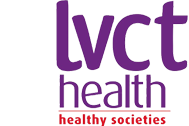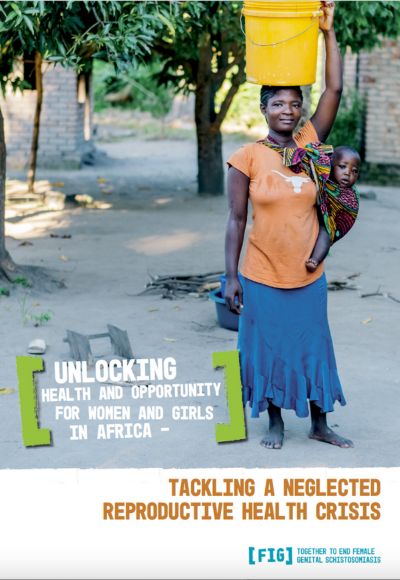FGS
Integrating Female Genital Schistosomiasi Education in HIV and SRH Services
Region: Homa Bay, Kwale and Kilifi Counties
Funder: Children’s Investment Fund Foundation
Consortium partners: Frontline AIDS, LVCT Health and Bridges to Development
Project Duration: 2023 to 2025
Project Overview
Our projects aim to improve prevention, diagnosis and treatment of FGS, a neglected condition that increases the risk of HIV infection for millions of girls and women.
Female Genital Schistosomiasis (FGS) is a widespread and neglected condition that increases the risk of HIV infection in women and girls. In sub-Saharan Africa alone, FGS affects an estimated 56 million women and girls.
Our programmes focusing on HIV and FGS aim to improve prevention, diagnosis, and treatment of FGS. We know integrating FGS into HIV prevention and broader Sexual Reproductive Health and Rights (SRHR) services is vital to improving the health and wellbeing of millions of women and girls.
Why the project is needed?
FGS is a condition that can result from untreated schistosomiasis or bilharzia. Schistosomiasis is caused by parasitic worms that live in freshwater. Communities and many health workers in schistosomiasis-endemic areas do not know about FGS or how to diagnose it.
FGS is often misdiagnosed as a sexually transmitted infection (STI), which can lead to huge stigma from families and communities, and possible violence from intimate partners who suspect infidelity.
Women and girls with FGS have a three-times higher risk of acquiring HIV and two-times higher risk for human papilloma virus (HPV), which is a primary cause of cervical cancer. FGS can also lead to infertility, miscarriage, and stillbirth.
FGS is treatable and preventable. A short course of medication (praziquantel) kills the worms, and transmission can be reduced through improved access to safe water, adequate sanitation, and good hygiene.
What the project is doing?
The ‘FGS Integration Project’, will develop guidance, implement and evaluate how to integrate HIV/FGS and SRHR services. This includes developing a minimum service package (MSP) for FGS integration, demonstrating the journey that women might take to receive SRHR, HIV and FGS services from their health facility.
Working with local and national governments, this minimum service package will be tested in three counties in Kenya that have a high burden of schistosomiasis and FGS: Homa Bay, Kilifi and Kwale Counties and is funded by Children’s Investment Fund Foundation (CIFF) .
The study will evaluate the acceptability, feasibility, and cost effectiveness of FGS and SRHR service integration. The findings will provide decision-makers with crucial information on how to rapidly scale up integrated approaches to FGS.
How we are working
This project is delivered by Frontline AIDS, LVCT Health and Bridges to Development, 3 partners of the FGS Integration Group (FIG) – a cross-sector coalition of organisations working in the SRHR, HIV, HPV/cervical cancer, NTD and water, sanitation, and hygiene (WASH) sectors.
Through FIG, we aim to mobilise resources for operational research, programming, and advocacy for the sustainable integration of FGS into public and community health programmes, placing the needs of women and girls at risk of HIV and FGS at the centre
Watch our short film
Explore our publications
Featured News and Blogs
- Pain, organ damage, infertility: the neglected disease that leaves millions of women in agony
- From Pain to Empowerment: A Woman’s Journey to Recovery from FGS
- Leading by Example: A Healthcare Worker’s Journey to Overcoming FGS
- Unveiling the curtain on Female Genital Schistosomiasis: Transforming communities through health literacy
- Breaking down Myths, Misconceptions and Stigma surrounding Female Genital Schistosomiasis in Kwale
- Triple Burden of HIV, Cervical Cancer and Female Genital Schistosomiasi
- My battle with waterborne disease misdiagnosed as STI
- Silent suffering: Kilifi women demand action on misdiagnosed ‘hidden’ disease in reproductive health




